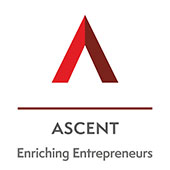Blog
How do you plan the succession of your most successful asset?
Back in the early 2000s when Lamborghini were replacing their most expensive model, they did something never done before, they invited the biggest independent designers of the world to a convention.
Whoever designed the best car, Lamborghini would take that design and put it into production. The final designer would get a % on each unit sold and be openly credited for the work. In the running was their in-house design team as well.
The new model that resulted from this exercise became the car that sold more than all the most expensive Lamborghinis before it, combined.
In a press release, the Managing Director justified the exercise by saying “we just wanted the best possible design”.
Till date this is the best example of succession planning.
In every organisation there are individuals who are the next line of succession, especially in family businesses. Succession planning becomes even more difficult when the next line are shareholders in the company.
In situations like these, the effective way to ensure the best possible candidate is to undertake evaluation similar to when hiring a CEO from the open talent market. Rights as a shareholder, by the candidate, can be exercised otherwise but should have no bearing on the office they are being evaluated for.
This ensures that both sides involved, the candidate and the erstwhile office holder are satisfied with the process. The candidate coming off with the sense that they “earned” the position and the erstwhile office holder being satisfied with the choice just like any employer when they onboard the final candidate for the job.
The final question then remains; wouldn’t the open talent market provide more experienced individuals? In the example above, the in-house design team won. Reflecting on their victory the team said, “the competition had a history of designing the best-looking car, we had a history of designing the best Lamborghini”.
– Authored by Tarun Chakraborty on behalf of EQUiTOR Value Advisory


